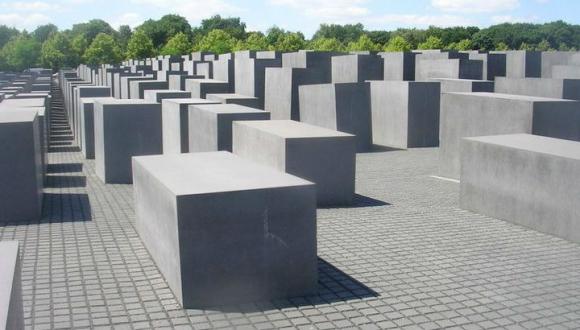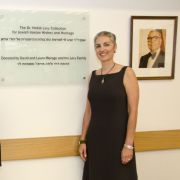Anti-Semitism Report: Neo-Nazism on the Rise Across Europe
Last year marked the return of political Nazism to Europe, declared Dr. Moshe Kantor (pictured below left), president of the European Jewish Congress, at a press conference to announce the results of the 2012 Anti-Semitism Worldwide Report published by Tel Aviv University's Kantor Center for the Study of Contemporary European Jewry. Headed by Prof. Dina Porat, Chief Historian of Yad Vashem and incumbent of the Alfred P. Slaner Chair in Antisemitism and Racism, the Kantor Center releases the report annually on the eve of Israel's Holocaust Memorial Day, in cooperation with TAU's Stephen Roth Institute for the Study of Contemporary Anti-Semitism and Racism.
Pointing to the examples of the political organizations Jobbik in Hungary, Golden Dawn in Greece, and Svoboda in Ukraine, Dr. Kantor said that in 2012 far-right parties gained momentum that has been unprecedented since the 1930's. These parties "have crossed red lines that we had hoped never would be crossed again," he said, citing the attempts of Jobbik to screen Hungarian Jewish citizens as a potential security risk.
Also significant was a 30 percent jump in anti-Semitic violence and vandalism last year, after a two-year decline. The annual report recorded 686 attacks in 34 countries, including physical violence and vandalism to synagogues, Jewish cemeteries, and Holocaust memorials, compared to 526 attacks in 2011. Countries topping the list for anti-Semitic incidents include France, the US, the UK, and Canada.
Dr. Roni Stauber, editor-in-chief of the report, called the findings interrelated. In 2012, a rise in neo-Nazi parties was observed "as a result of the economic crisis," he said. "We also observed a correlation between these parties and violence and rhetoric against Jews." For example, in Poland, researchers found that acts of vandalism against Jewish cemeteries and Holocaust memorials became more numerous as anti-Semitic political parties have gained power.
Fighting hate in European parliaments
Researchers found that the economic crisis spreading across Europe is fuelling the rise of extremist parties. In countries undergoing particularly difficult economic crises, such as Greece, Spain, Hungary, and Italy, there is a spreading belief in a "Jewish conspiracy" and the idea that Jews are in control of the economy and therefore responsible for current financial woes, Dr. Stauber said.
One of the leaders of this movement, Jobbik in Hungary, gained 19 percent of the vote in the country's last elections, compared to 12 percent the elections before. It is the most popular party among university students, pointed out Dr. Kantor, warning that "Neo-Nazis are legalized again in Europe."
Calling the fight against hatred and intolerance a "pan-European issue," Dr. Kantor advocated that the European Union and other governing bodies adopt a "zero tolerance" policy against anti-Semitic and racist political groups. "We cannot allow hate to march along our streets, run for public office, or sit in our parliaments. We have to act now," he said. "While our economies may be able to be repaired, our moral centers may not."
Deeply rooted anti-Semitism
With neo-Nazi parties gaining a stronger foothold in government, there has been a surge in anti-Semitic incidents, reports the Kantor Center. While events in the Middle East are often blamed for the attacks, this year's report indicates that domestic political crises are a much more powerful motivation for anti-Semitic sentiment.
Researchers found little correlation between Operation Pillar of Defense in late 2011 and the sharp increase in violence, vandalism, and threats throughout 2012. Instead, the report found that violence and other anti-Semitic acts occurred in waves. In particular, the March 2012 shooting in the French town of Toulouse, where an extremist Muslim gunned down four people in a Jewish school, began a series of "copycat" attacks perpetrated by radical Muslims in France and other countries,. In Hungary, the number of people who espouse anti-Semitic stereotypes rose from 47 to 63 percent in the last year, and 50 percent of the Polish people still blame Jews for the death of Jesus.
Dr. Kantor said that as a Jewish leader in Europe, he feels concerned for the safety of the Jewish community. Interfaith dialogue, the protection of all minorities, and more determined pressure on European authorities to act against violence are of the utmost importance, he added.
As originally reported by AFTAU






